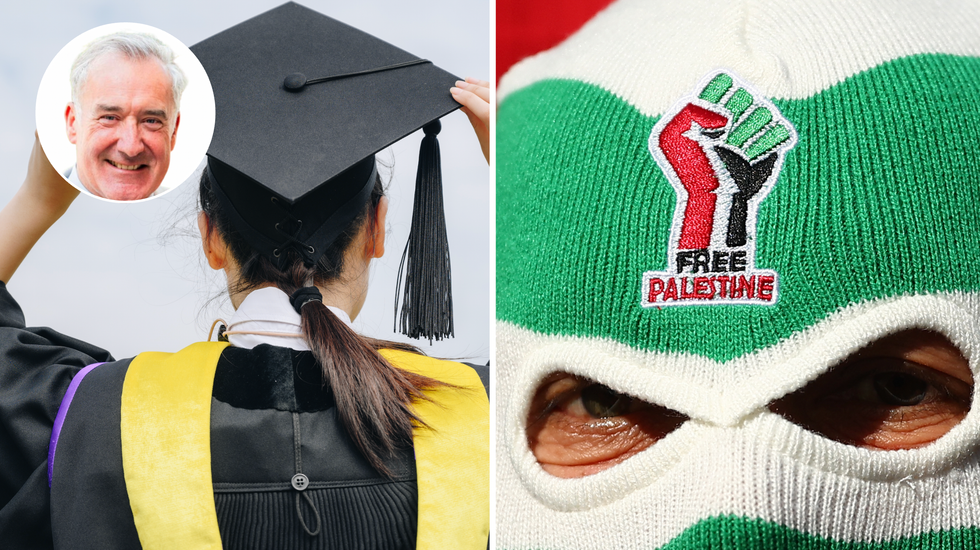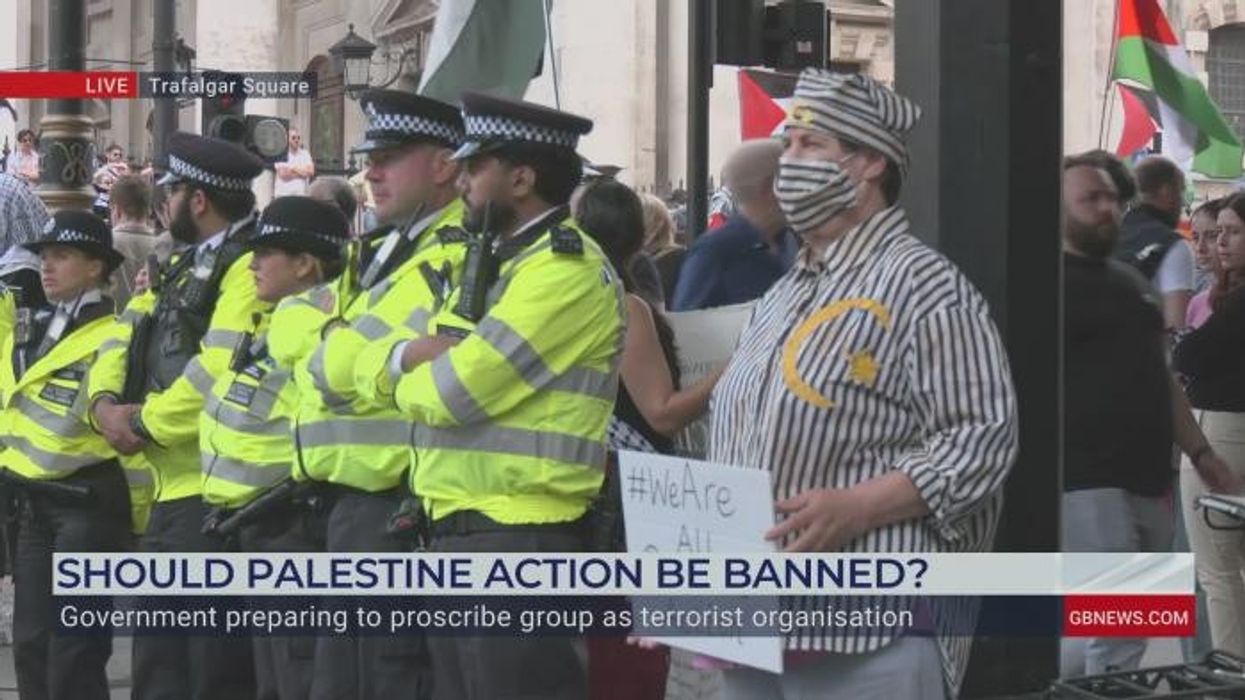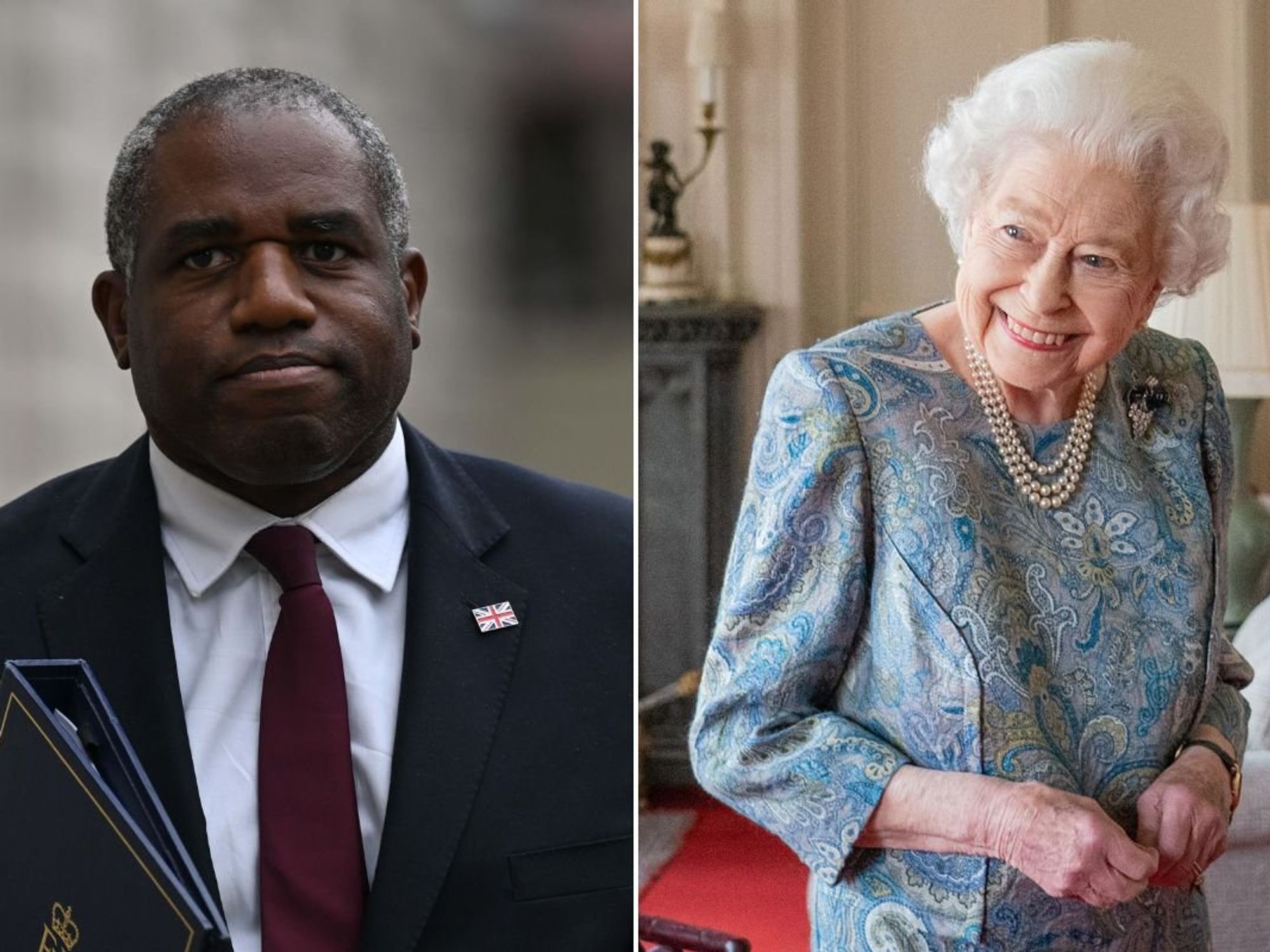Tony Blair's toxic legacy was shoved down my throat at a graduation. Britain is too far gone - Colin Brazier
For 30 years, we have encouraged the grotesque oversupply of graduates
Don't Miss
Most Read
Trending on GB News
I went to a graduation ceremony this week. It was a nice moment. Celebrating years of hard study and - one hopes - the start of working life.
But there were two bum notes, one minor, the other major. One was the sight of a young white woman collecting her degree while handing over a small Palestinian flag.
As acts of rebellion go, it was small beer, involving no personal jeopardy. As she walked away from the dais, she looked more embarrassed than smug. It was self-indulgent virtue signalling, but also an almost reassuringly familiar cliche.
This sort of thing has been happening for decades. If not Gaza, then climate change or apartheid or Vietnam. You get the picture.
But the other thing that happened was far more invidious. At the end of the ceremony, an ageing academic was given an honorary degree.
The encomium given on his behalf seemed to place his scientific achievements up there with Watson & Crick. Was he being garlanded for advancing our knowledge of biology? I can’t say.
But I have a suspicion it had just as much to do with the foundation he’d decided to set up in the wake of the death of George Floyd.

Tony Blair's toxic legacy was shoved down my throat at a graduation. Britain is too far gone - Colin Brazier
|Getty Images
For me, the Black Lives Matter movement should not be celebrated as a great punctuation mark for social change. The organisation is now discredited.
Its crazier aims - including defunding police - need to be seen in an American context (the fact they were cut-and-paste here is a recurring feature of the culture wars).
The hysterical reaction of government, businesses, media, charities, even police forces, now seems toe-curling (no picture has done Keir Starmer more harm than the photo of him ‘taking the knee’ with Angela Rayner).
But that is history. What’s alarming is that it is still being used to justify policies which actively discriminate against poor white kids.
Why do I say this? Because the professor effectively told his captive audience so. His foundation wanted to help students “regardless of background”.
But not - very much not - regardless of colour. The foundation sought to pay the tuition fees and living costs of poor students, providing they were not white.
At one point, and without any sense of irony, he invoked the memory of the American civil rights leader, Martin Luther King.
It seemed to have slipped our professor’s mind that Doctor King wanted a society where nobody would be judged according to the colour of their skin.
The hall contained a mix of parents. A large number from abroad. Others from the UK, but in class terms, from different planets.
I suspect many of them were there with children who were the ‘first in our family to go to uni’. At the end of the professor’s oration, there was applause.
But I also noticed quite a number of parents who were manifestly not joining in. On my row, an older white man sat with his tattooed forearms firmly crossed and a look on his face which seemed to say: I will not submit, I will not comply.
I salute that man. The white working class is often criticised for a lack of aspiration, with unfavourable comparisons often made with the ‘migrant optimism’ of newcomers.
But where was the encouragement for white working-class ambition here? We were listening to a middle-class (son of a physician) mixed-race academic tell us that poor black students would get support worth many thousands of pounds. But their white counterparts would face life-limiting mountains of debt.
For me, it was a microcosm of much that is wrong with our higher education system, a system which inculcates bright minds with weak ideas.
The Marxist philosopher Antonio Gramsci famously said that the Left would win the great ideological battles through a ‘long march through the institutions’.
And sitting at this graduation ceremony confirmed my long-held prejudice against the expansion of the institutions which make up this bloated sector.
The next general election in the UK will be in 2029. That year will mark the 30th anniversary of Tony Blair’s ill-fated decision to massively enlarge the availability of university places.
When I was a student in the late 1980s, about a tenth of school-leavers went into higher education. Blair said half should.
To do that would’ve required huge taxpayer support. Student loans were the answer to the problem. The original rationale, that superior graduate earnings justify the debt, no longer applies. Rises in the minimum wage mean that someone doing a 40-hour week of bar work is likely to earn more than some graduates ever will.
The effect of this is already being felt. And in unexpected ways. Our historically low birth rate is partly driven by young people unable to get their financial ducks in a row. How can you buy a home and start a family if you owe the state tens of thousands of pounds?
For Reform or the Tories, there is a political opportunity here. On the debt, I would make an explicit link with the approaching demographic winter.
The part of society that has stopped having children is not those on benefits or those who are very wealthy. It is the struggling middle.
And nobody in the middle is struggling more than those with modest salaries and student debts. My answer: a student loan amnesty for anyone expecting a child.
But universities offer a bigger campaign canvas. Student debt and the Ponzi scheme on which it is built are one thing. But the lunatic expansion of higher education has had other unforeseen consequences.
The depredations faced by formerly tight-knit working-class communities where student numbers mushroom are routinely overlooked.
I wrote here recently about how whole areas of some of our biggest cities have been disfigured by the arrival of thousands of transient undergraduates, who have no stake in the community in which they briefly live. The response from readers suggested many people agree.
And then there is the ideology. Time was when universities were conservative institutions. Now they are often woker than the students who arrive there, peddling courses with no discernible benefit to the country at large and producing graduates only fit to do ‘non-jobs’ for the ‘client state’.
So 2029 represents an opportunity for a major reset. For 30 years, we have encouraged the grotesque oversupply of graduates while underestimating the effect wrought by three years of indoctrination on impressionable minds.
I would not choose an arbitrary figure for an ideal proportion of students in higher education. But it is certainly less than half, and probably closer to a quarter of any given cohort. Getting to that number would see dozens of institutions go to the wall. It is, frankly, a much-needed cull.
The world is throwing up terrifying and existential challenges, and our education system is not producing a next generation equipped to match the threats. We need our young people to start earning and working, and breeding sooner than they currently are.
Blair’s toxic legacy must be undone.
More From GB News











